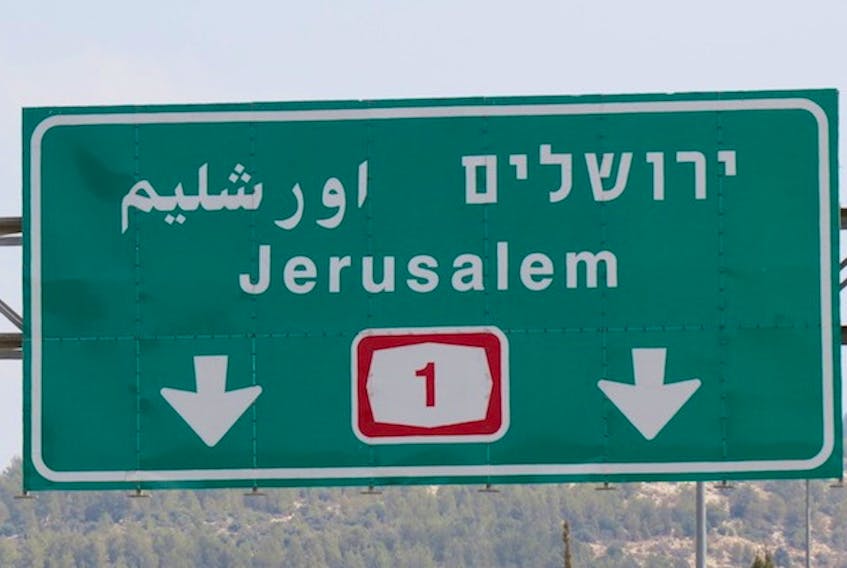"Love and politics," contemporary French philosopher Alain Badiou wrote, "are the two great figures of social engagement." While various art forms occasionally deal with overtly political themes or events, few explicitly capture the connection between politics and romance. Culture and art in their various forms often reflect the underlying social tensions and problems of a given society.
Recently an engaging new film, Loving (2016, dvd), and a provocative new book, All the Rivers (2014, trans. 2017), have been released, both of which are profoundly moving and disturbing, and deal directly with the stigmatization and problems surrounding interracial and inter-religious marriages and relationships. These love stories are intensely powerful social commentaries that link the personal with the political. These works are paired here because of their common theme.
Loving, starring Joel Edgerton and Ruth Negga, is the true story of Richard and Mildred Loving's interracial marriage (he is white and she is black) in Virginia during the late 1950s and 1960s, and their subsequent arrest, trial, and conviction, for violating that state's anti-miscegenation law forbidding mixed racial marriages. Ultimately, the U.S. Supreme Court in Loving v. Virginia (1967) unanimously struck down the state's legislation prohibiting interracial marriage as unconstitutional.
Acclaimed Israeli author Dorit Rabinyan's novel, All the Rivers, is an Arab-Jewish love story about an Israeli woman and an Arab-Israeli artist in NYC, against the backdrop of the Israeli-Palestinian conflict. It caused a political outcry in Israel because of its sympathetic portrayal of an interracial relationship and the humanization of the male Palestinian protagonist.
The Israeli ministry of education refused to include the book in the high school curriculum on the grounds that "it promotes intermarriage and assimilation" (Haaretz , Dec. 31, 2015) - that is, mixed racial and religious relationships - which are contrary to maintaining the ethnic purity of the Israeli state. The similarities with Loving are too obvious to ignore. The plot has insight, while the prose has a rolling lyricism; the character development uses interior monologue, although overwritten at times. The novel has become a bestseller, domestically and internationally.
The issue of mixed race and religious relationships, the central issue in both these works, is beautifully and tenderly portrayed against the social and political pressures that the couples faced and how it affected their relationships. Their love stories, regardless of whether they take place in Virginia, Tel Aviv, or PEI, and the challenges of mixed unions or relationships, are universal and timely.
In the U.S. today, according to a PEW Research Center report (2010), over 15 percent of all new marriages are mixed race or ethnicity. In Canada however, only 5 percent of couples are in mixed racial unions according to a NHS survey (2011). Today in the U.S. over 50 percent of all Jewish marriages are mixed religious unions, compared to only 20 percent in Canada.
Today Israel is engaging in racial and religious cleansing, notwithstanding the fact that 25 percent of its citizens are Arab (or, Palestinian)-Israelis. As well-respected CBC reporter Neil MacDonald recently wrote, "Israel already is an apartheid state." (CBC website, Oct. 25, 2017). Things have turned ugly in Israel: With Trump's tacit approval Israeli settlers have now illegally annexed large parts of the West Bank and East Jerusalem; Defense Minister Lieberman has openly called for the expulsion and disfranchisement of Arab-Israeli's with half the electorate supporting him (Haaretz, March 8, 2016).
Over 50 mosques and churches have been vandalized in Israel since 2009, with only 9 prosecutions (Haaretz, Sep. 24, 2017). Arabic signage on public transit has been removed, and Arabic cultural venues have been defunded. A report by the Israeli human rights organization B'Tselem revealed wide -spread systemic abuse by Israeli police directed at hundreds of Palestinian teenagers (Haaretz, Oct. 25, 2017). There are many similar cases. But most Jews would cringe at the suggestion that these policies sound like the German Nuremberg race laws (1935).
Ultimately, "the personal is political," because, "we have to be taught to hate and fear."
- Richard Deaton, PhD, LLB, is a resident of Stanley Bridge, and former instructor at Canada’s Royal Military College.









